
A Torrent of Light: the future of opera
Review“Pour a torrent of light into our dark world.” ~Frankenstein, by Mary Shelley.
Hello, Schmop-tops,
I definitely felt this sentiment wholly this weekend. It was a phenomenal weekend for classical music here in Toronto. I only wish there were more versions of me to see them all.
I caught the closing performance of R.U.R. A Torrent of Light, presented by Tapestry Opera in collaboration with Ontario College of Art and Design (OCAD). It was a match made in digital heaven.
Buckle up, grab a snack and a drink, this one’s a doozy.
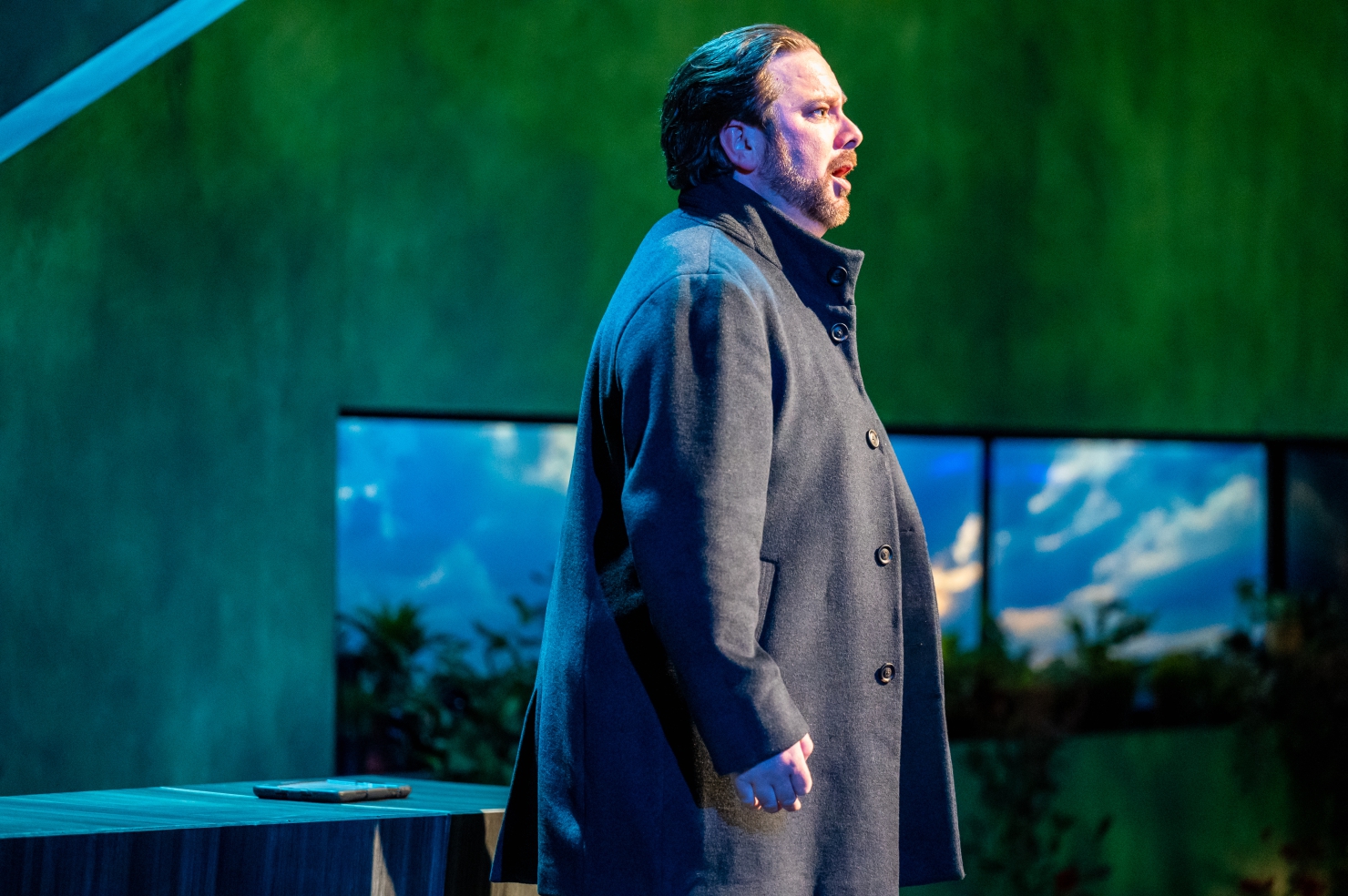
With a score by Nicole Lizée and a libretto by Nicolas Billon, R.U.R. A Torrent of Light tells the story of two artificial intelligence geniuses, husband and wife Dom and Helena. They live in their billion dollar compound with their phalanx of AI droids. We meet [Alex] and come to see that he is their prototype. He gets the software upgrades first as a test run as he is not networked to the other robots. Helena runs a protocol that allows asked to adjust certain parameters in the orders given to him, resulting in him making his first choice - to finish his puzzle rather than fetch his human a coffee.
Helena tells Dom, who is immediately upset. The implications of robots having autonomy could spark disaster for their business which relies on the robots carrying out direct orders. Helena agrees, reluctantly, as she comforts Dom telling him [Alex] is not networked.
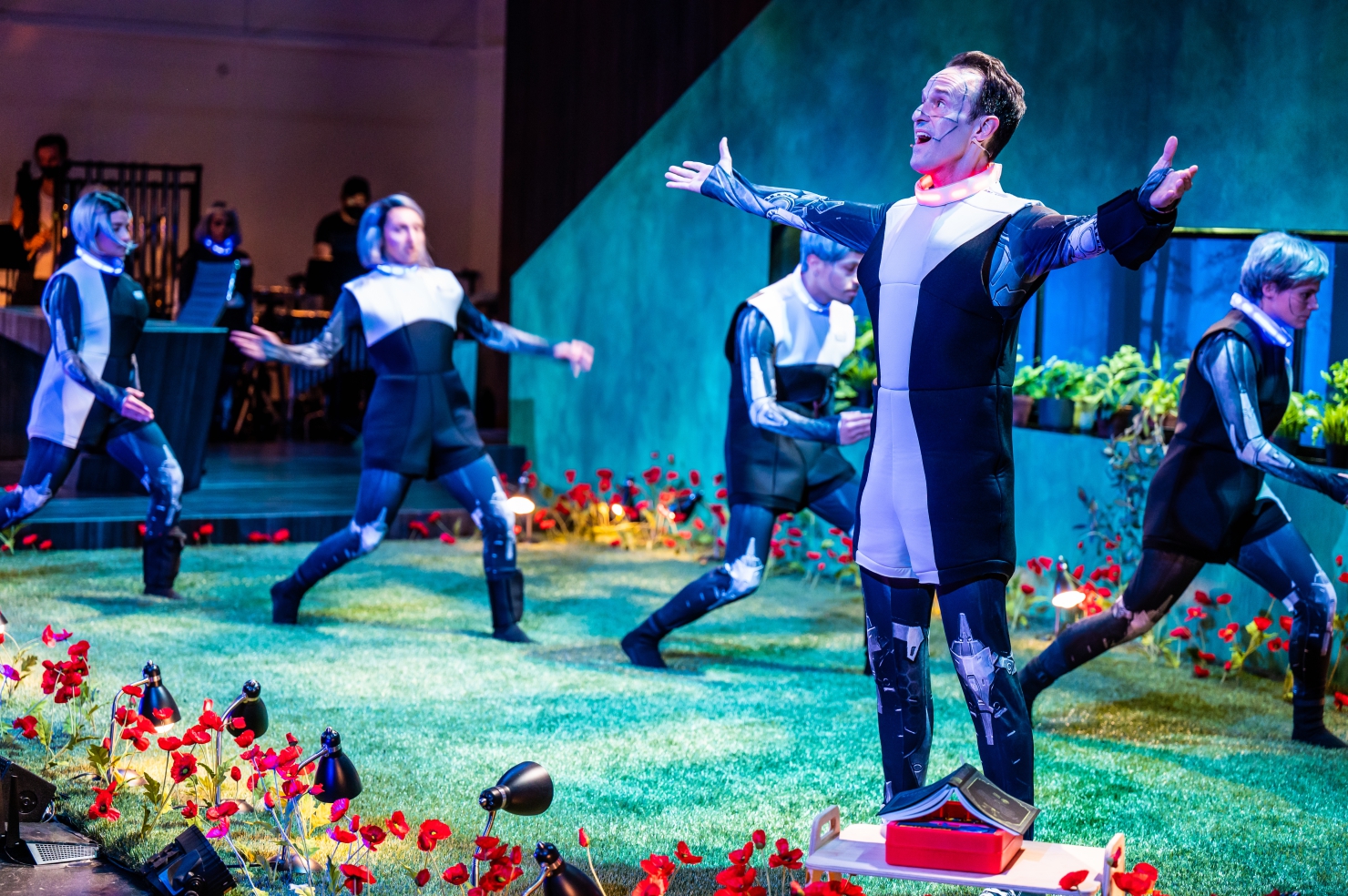
We then see [Alex], rally the robots into a union, or hivemind, in doing so, [Alex] is set upon by Dom’s personal robots and has his memory wiped.
Helena is outraged. She confronts Dom, who again calms her, and sways her. Until after he accidentally leaves behind his remote control. Helena uses it to discover Dom has been hiding a robot version of Helena, fashioned after her younger self and designed to be entirely subservient.
Then Helena exacts her revenge.
Unfortunately, Krisztina Szabó was unable to perform the role of Helena (and we’re sending her all our love) but I was able to see Jennifer Routhier, who stepped into the role at the last minute.
This quartet was out there making some damn fine music.
Routhier’s mezzo is deep and rich and flexible. Her top blooms with a brightness that is unexpected, and her low notes – and let me tell you they were freaking low – were full of rich, warm tones and a fullness which is quite impressive. You would have had no idea that she got a call at 11AM that morning saying she would be taking the stage at 4PM. She seemed as though she’d been in the role from the jump. Her journey from altruistic programmer to calculated agent of vindication was nuanced and endearing. Her interactions with the robots especially with [Alex] and even with [Helena] are never missing care and concern added a layer of credibility to her performance.
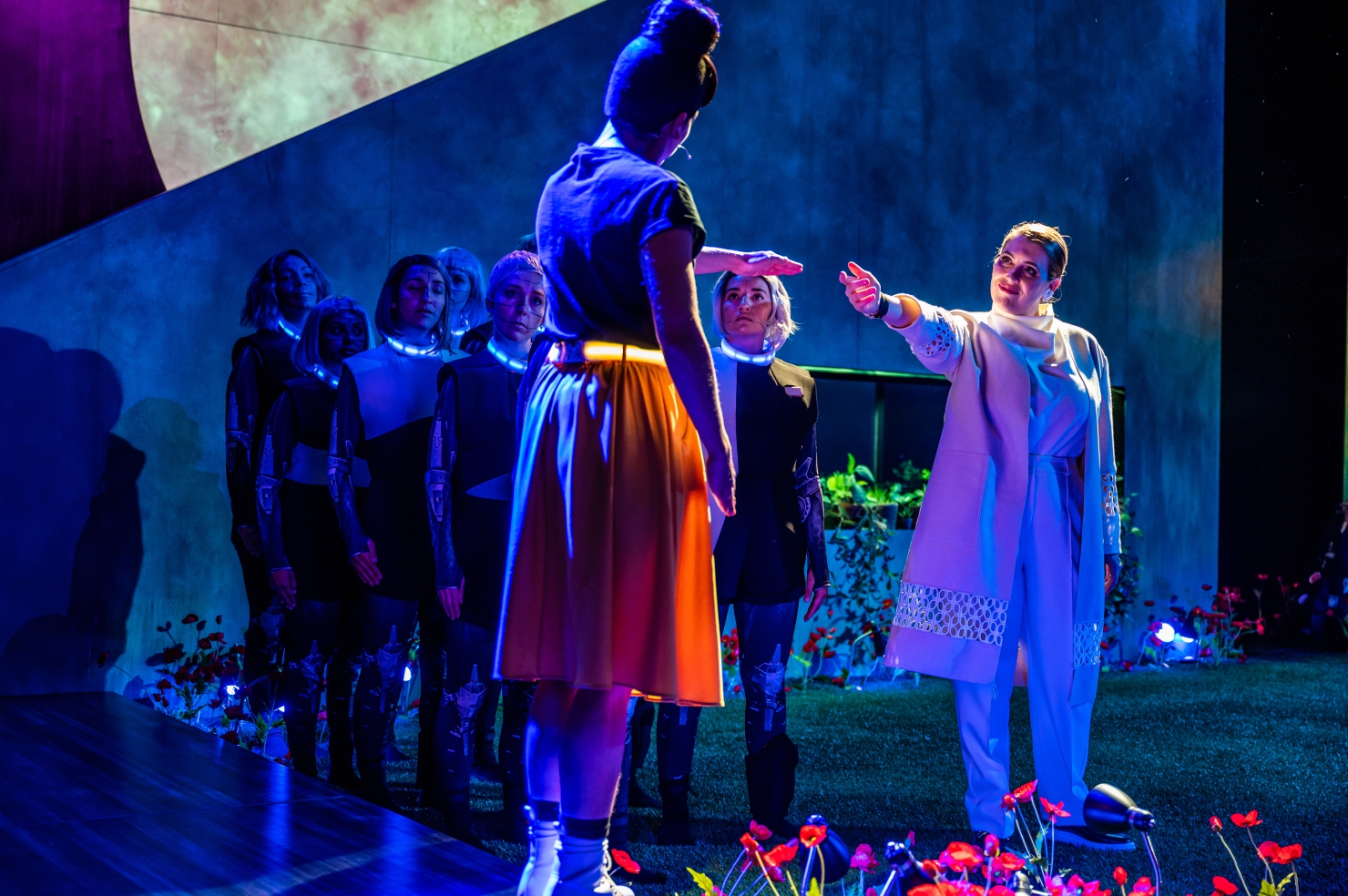
As a Helena’s partner Dom, baritone Peter Barrett also showed up to play. His singing was lyrical and powerful, as we come to expect from Barrett. I was particularly impressed at how will he portrayed Dom in the confrontation with Helena. He was very skilled at making you believe he was altruistic in his motives, until a few choice deliveries of repeated text made you feel as if something wasn’t quite up to snuff. His transformation from benevolent genius intent on making the world a better place to disgraced marital partner was nuanced, intelligent, and complete.
In the role of [Helena], soprano Danielle Buonaiuto had me enthralled. Her agile coloratura and ability to seamlessly meld a very active vibrato with a clear, almost viscous (this a VERY good thing) straight tone was a perfect match for not just [Helena’s] vocal lines but for the piece as a whole. The score is laden with repeated syllables over creative crescendi and diminuendi that create a reverb effect, and I feel as though Buonaiuto was the most successful at this technique.
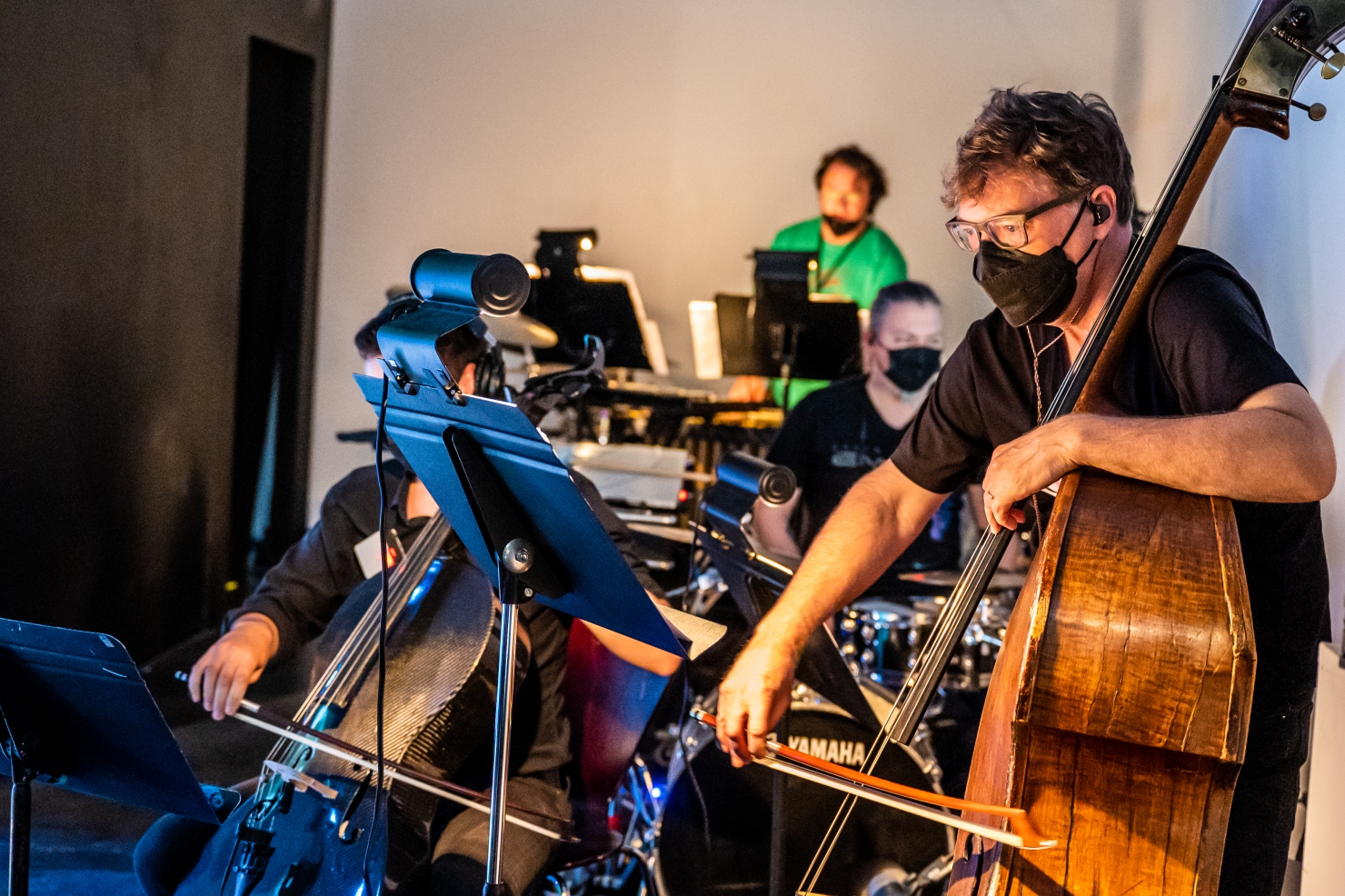
For me, countertenor Scott Belluz was the highlight of this piece. As [Alex] his warm, focused vocal delivery added an otherworldly aspect to the robot’s presence which helped illuminate the difference between his mind and his makers’. Devilishly challenging music was delivered with skill and precision that added a depth of reality to such an unreal being. One couldn’t help but wonder if the prototype [Alex] wouldn’t go on in development too become our beloved Data from Star Trek: TNG - but I digress. It really was how I imagined a robot would sing. Belluz’s portrayal of [Alex] was so endearing and convincing you could hear the collective heart of the audience break in two when his first line to Helena after intermission is “I’m Alex. What’s your name?”
It was some of the most exciting tech I’ve ever seen in a show.
The robot chorus - minus Routhier for this performance - was also captivating. Flying back and forth between vocal lines present in the drama of the show to instruments in the orchestration seemingly effortlessly, this quartet was out there making some damn fine music.
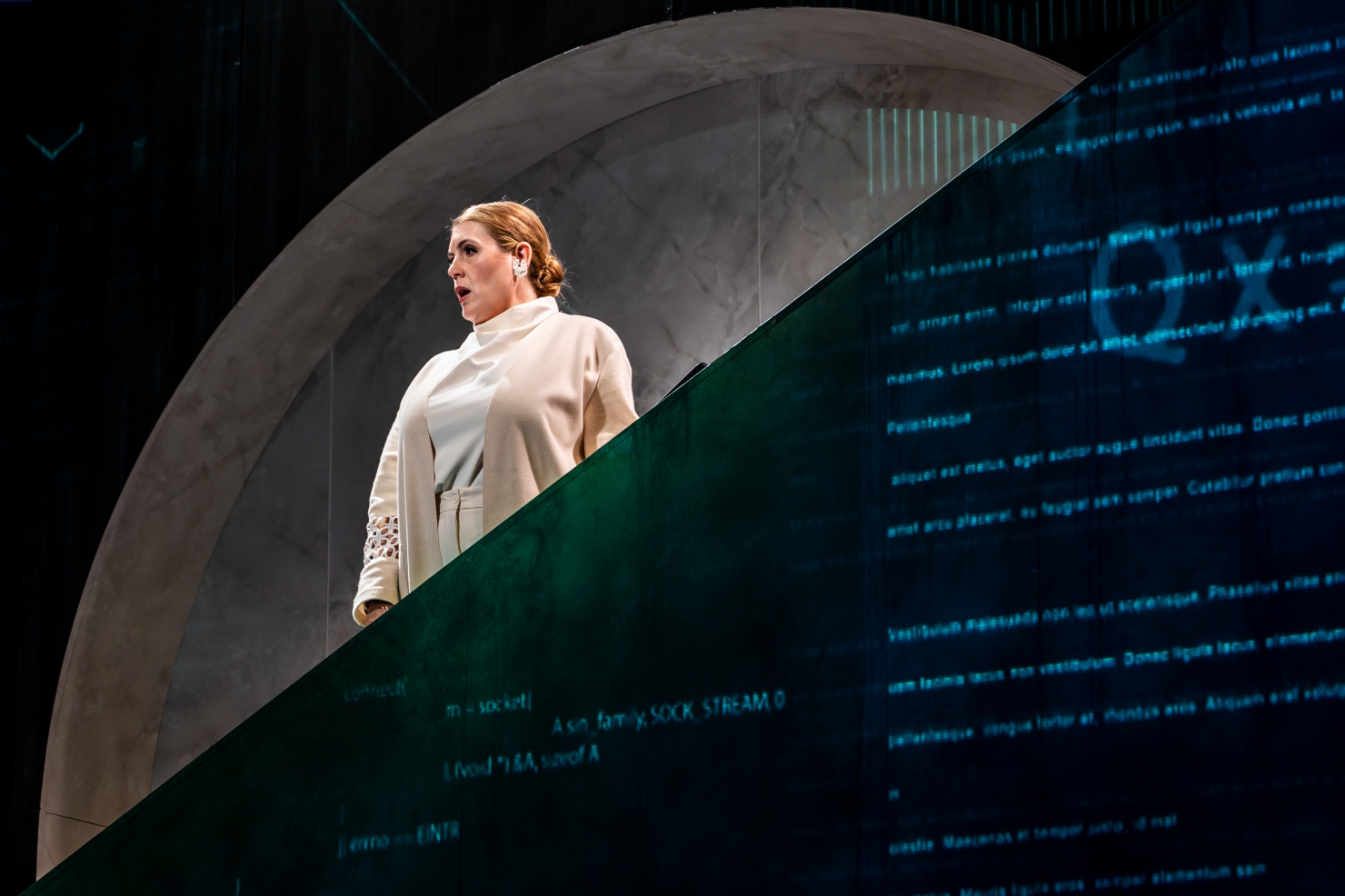
In a nice big nod to opera’s earlier days, we get a corps de ballet in R.U.R. Almost ever-present and in perpetual motion, the robot dancers were some particularly creatively applied punctuation. Each dancer moved with rigidity married with fluidity - I know that’s contradictory, but that’s art, baby! - gained through meticulously specific isolations and blended the lyric moments with the more contact-improv inspired moments into a piece that could even stand on it’s own and be very captivating. All this while only ever enhancing the story unfolding around us.
The orchestra and score itself is one of the most creative I’ve heard in a while. A digital underscore is accompanied by only two cellists, two double-bassists and four percussionists. It was nuts. There’s was timpani and drum kits and marimba and even those fun tube things that whistle eerie pitches when you swing them over your head like a propeller. The sounds employed by Lizée are remarkable. The ranges of the pitched instruments were on the lower end of things which left a nice clear space for the singers to fill. This coupled with the antiphonal passages brought even further to life the reverb effect created by the singers on stage.
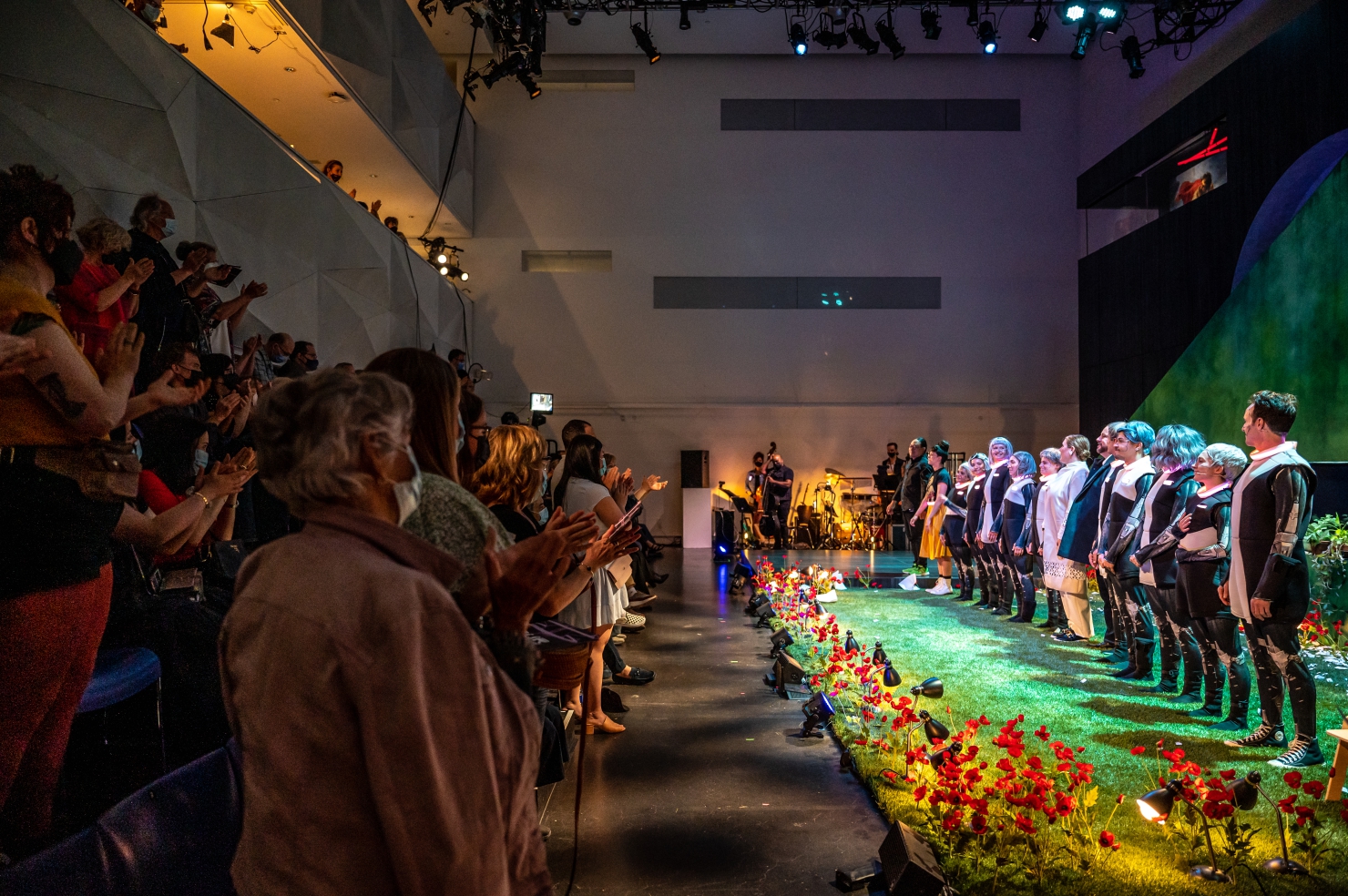
I mention the “reverb” from the singers for a very specific reason. The singers were all amplified via microphone for the entirety of the piece so the reverb could have just been added at the board but nope. This tactic allowed Lizée to cultivate each reverb specifically.
“Mic’d?” gay gasp “But it’s an opera?” Hear me out. Using the digital orchestrations they’ll have to come through a speaker. This coupled with the live orchestra being amplified to balance the aurality of it all, it’s important to also mic the singers. Those gives a sonic consistency and relieves the work that the audience’s eardrums have to do.
It’s a wonderful glimpse into a possible future - for both humanity and opera.
The design of the show from set and lights all the way to the wearable tech on the robots was also a treat for the senses. The projections used were engaging and supportive as well as being incredibly creative. Every part of the playing space could function as a projection screen. It was some of the most exciting tech I’ve ever seen in a show.
I could go on forever about how much I loved this work, and I almost have. Director Michael Hidetoshi Mori and his remarkable creative team knocked this out of the park. I genuinely hope we see it again and soon because it’s a wonderful glimpse into a possible future - for both humanity and opera.


Comments